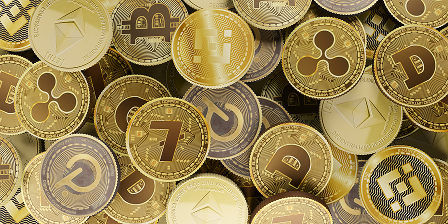Smart Contracts: Automation of Transactions in the World of Cryptocurrencies
February 20, 2025
Smart contracts are one of the key innovations that have brought revolution to the financial and technological world. They became the basis for automating transactions in the cryptocurrency ecosystem and opened the door to the creation of decentralized applications (dApps). In this article we will look at what smart contracts are, their pros and cons, and in what areas they are used.
What is a smart contract?
A smart contract is an automated agreement implemented in the form of program code and placed on the blockchain. Its main function is to fulfill the terms of the contract automatically as soon as specified events occur, without the participation of intermediaries.
Smart contracts are created using programming languages such as Solidity and run on a decentralized blockchain network. The principle of their operation is simple: when specified conditions are met (for example, receipt of payment), the corresponding action is automatically carried out (for example, the transfer of an asset or product).
How do smart contracts work?
- Creating a contract. The developer writes a smart contract in a programming language, for example, Solidity (for Ethereum). The code includes the terms of the transaction and the actions that are performed when they are fulfilled.
- Placing on the blockchain. The contract is uploaded to the blockchain, where it becomes immutable and accessible to all network participants.
- Execution. When an action that meets the terms of the contract is initiated (for example, a cryptocurrency transfer), the contract is automatically executed.
Imagine that you want to rent an apartment. The smart contract automatically transfers rent to the owner every month, and if you decide to move out, the money is returned to you. All conditions are written in the code and are fulfilled automatically.
Advantages of smart contracts
Automation and speed: Smart contracts work like autopilots in the world of transactions, automatically fulfilling all the terms of the agreement. This eliminates the human factor and significantly speeds up processes.
Transparency and trust: Every step of the smart contract is visible to all participants, like an open book. This increases the level of trust and reduces the risk of fraud.
Immutability and security: Once placed on the blockchain, a smart contract becomes immutable, like a fingerprint. This makes it reliable and protected from counterfeiting.
Global coverage: Smart contracts know no boundaries. They work anywhere in the world where there is Internet, allowing you to enter into transactions with partners from any country.
Disadvantages of smart contracts
- Errors in the code. Smart contracts are not immune to human error. If an error is made in the code, it can lead to financial losses.
- Lack of control. Once posted on the blockchain, the contract cannot be changed. This can be a problem if the terms of the deal have changed or corrections need to be made.
- Legal issues. Smart contracts are not always recognized by law in different countries. In the event of disputes, it may be difficult to protect your interests legally.
- Blockchain dependency. The performance of smart contracts depends on the platform on which they are hosted. Blockchain issues (such as network congestion) may affect their execution.
Areas of application of smart contracts
- Financial transactions. Smart contracts simplify the exchange of cryptocurrencies, automate interest payments on loans and manage investment portfolios.
- Insurance. Claim payments can be automatically made when specified conditions occur, such as flight cancellation or natural disaster.
- Real estate. Automation of real estate transactions, including rent, purchase and sale.
- Gaming industry. The use of smart contracts in games allows you to automate micropayments and trading of game assets.
- Decentralized finance (DeFi). Smart contracts operate lending, staking and cryptocurrency exchange platforms.
- Logistics. Contracts can track supply chains and automatically trigger payments when goods are delivered.
- Copyright. Smart contracts ensure automatic distribution of royalties among content creators.
Examples of real smart contracts
Uniswap. This is a decentralized exchange (DEX) that allows you to exchange tokens on Ethereum without the participation of intermediaries. All operations are performed using smart contracts.
Aave. DeFi platform for lending and borrowing cryptocurrencies. Loan terms and interest payments are managed by smart contracts.
CryptoKitties. One of the first blockchain games where users buy, sell and breed virtual cats. Each cat is an NFT created using a smart contract.
Prospects for the development of smart contracts
Smart contracts continue to evolve and find new applications. With growing interest in Web3 and decentralized applications, their importance is only increasing. In the future it is expected:
- Increased scalability and reduced fees on blockchain platforms.
- Increasing integration of smart contracts with traditional industries such as medicine and government services.
- Creation of hybrid contracts that combine legal and digital components.
Conclusion
Smart contracts are a powerful tool that opens up new horizons for automating transactions and building trust in the digital world. Despite some limitations, their potential is enormous. Once you understand the basics of smart contracts, you can better understand how to use them in your business and what capabilities they offer.
The world of cryptocurrencies and blockchain is rapidly evolving, and smart contracts play a key role in this process. Mastering this technology today can be an important step towards a future where transactions will be as transparent, safe and effective as possible.



